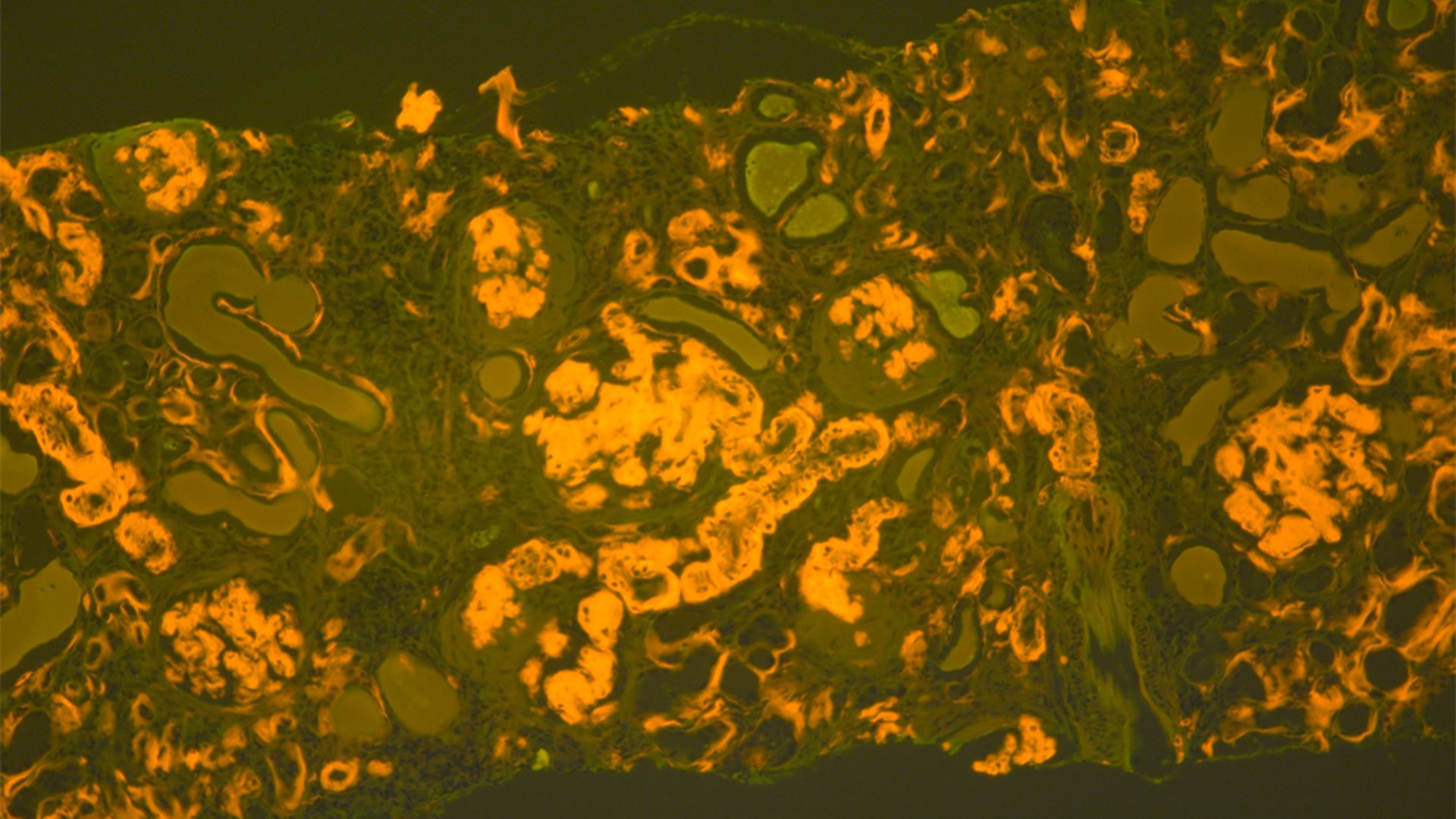Northfield, Ill. (November 24, 2025) — A new evidence-based guideline to help standardize the diagnosis of amyloidosis and improve patient care, was just published by the College of American Pathologists (CAP).
Amyloidosis is a rare but serious disease caused by the buildup of abnormal amyloid deposits in the body. The new guideline aims to support earlier and more accurate diagnosis, which is critical for effective treatment but has often been challenging for laboratories and pathologists.
A multi-disciplinary panel of experts reviewed more than 4,000 studies to develop recommendations on the most accurate methods for detecting amyloid, identifying fibril protein type, and evaluating sample types. The guideline provides pathologists with clear direction on appropriate testing and subtyping of amyloid-positive specimens.
“This guideline is meant to improve the consistency and accuracy of laboratory diagnoses for systemic amyloidosis,” said guideline co-chair Dylan V. Miller, MD, FCAP. “Clearer standards will support more reliable diagnoses and ultimately better outcomes for patients.”
Key Recommendations
- Cytology: May be used for fat pad screening; less invasive but limited for subtyping.
- Congo Red Stain: Remains the standard for amyloid detection; other stains should be validated.
- Fluorescence Microscopy: May improve Congo red sensitivity where available.
- Protein Typing: Mass spectrometry recommended for greatest accuracy and sensitivity.
“Amyloid science is advancing rapidly, with new imaging, typing, and therapies reshaping the field,” said guideline co-chair Billie Fyfe-Kirschner, MD, FCAP. “For pathologists, staying current is essential to ensure accurate diagnoses and guide patient care.”
The CAP will reassess the guideline every five years or sooner, as warranted by advancements in research or clinical practice.
For tools, resources, and further details, visit the guideline webpage on cap.org.
###
About the College of American Pathologists
As the world’s largest organization of board-certified pathologists and leading provider of laboratory accreditation and proficiency testing programs, the College of American Pathologists (CAP) serves patients, pathologists, and the public by fostering and advocating excellence in the practice of pathology and laboratory medicine worldwide. For more information, visit the CAP Newsroom, CAP.org and yourpathologist.org to watch pathologists at work and see the stories of the patients who trust them with their care.

